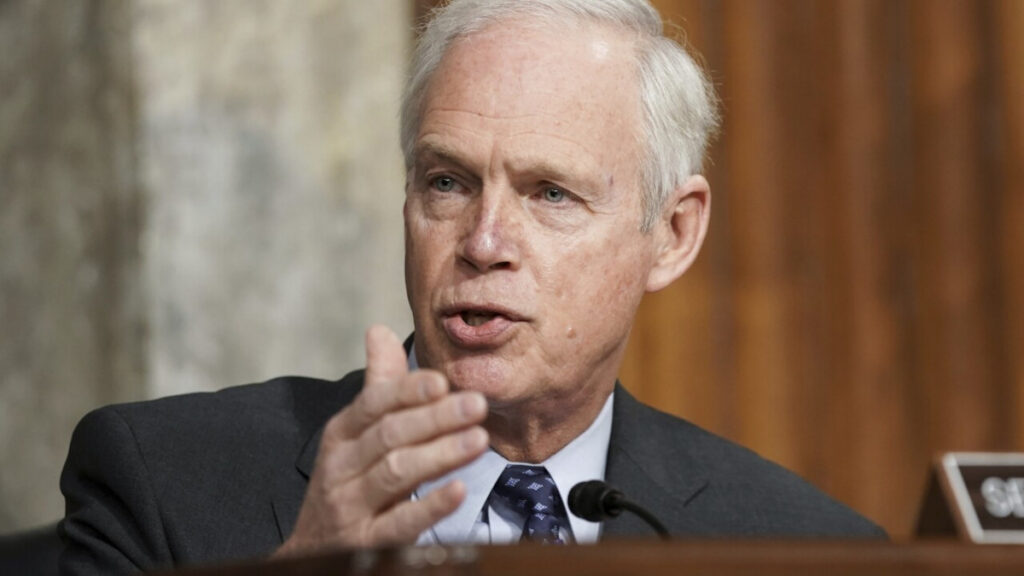Ron Johnson’s Fake Electors controversy Explained
3 min read
Credit: Greg Nash/AP
On the morning of January 6, 2021, just before Joe Biden won the US electoral vote, Wisconsin senator Ron Johnson was recently charged with providing phony electors for Donald Trump.
Johnson allegedly tried to transmit fake election paperwork to then-Vice President Mike Pence just before he started counting ballots, according to the most recent session of the January 6 committee.
In an eight-minute video earlier this week, Casey Lucier, the House committee’s investigative counsel, went into further detail about the charges against Johnson and discussed the various times he allegedly tried to rig the 2020 US Presidential Elections.
Lucier did note that the White House Counsel’s Office did not take the attempts into account. He supported the claims with the exchange of several texts between Johnson and Pence’s respective aides.
A look at the controversy surrounding Ron Johnson’s fake electors
According to new allegations made by the January 6 House Select Committee, Senator Ron Johnson tried to plan the transfer of fictitious Trump electors to former Vice President Mike Pence on January 6, 2021, before Congress accepted the 2020 electors and decided the election in Joe Biden’s favour.
The committee claimed that Sean Riley, Johnson’s top adviser, texted Chris Hodgson, Pence’s legislative director, telling him that the senator needed to “deliver something to the VPOTUS.”
Trump campaign employees allegedly tried to fly fake electors to Washington before January 6 according to the second set of mails sent to Wisconsin Republican Party Executive Director Mark Jefferson on January 4. As Jefferson stated:
“Freaking Trump idiots want someone to fly original elector papers to the Senate President.”
The public learned about Johnson’s alleged use of fake electors
Ron Johnson presided over a session in December 2020 where Trump supporters spread misinformation about the 2020 election, despite the fact that he did not vote with the other 139 Republicans to submit Trump’s claims.
Johnson was sued in March 2021 for alleged rebellion and conspiracy against Biden, which occurred before the most recent incident. He was charged with “undermining the outcomes of the 2020 election,” which is a violation of the 14th Amendment’s Disqualification Clause.
Sen. Ron Johnson Was Just Implicated In The Fake Elector Plot
Sen. Ron Johnson (R-WI) wanted to be the person who hand-delivered the fake elector certificates to Vice President Pence on 1/6.
Time to remove Johnson from office! #LockUpRonJohnson#OurBlueVoice pic.twitter.com/71b6NYq94a— ꧁🦋𝖦𝖾𝗈𝗋𝗀𝗂𝖺 𝖡𝗅𝗎𝖾🏳️🌈꧂#VoteBlue2022 (@ResisterChic) June 21, 2022Advertisement
Johnson’s spokesperson Alexa Henning shared on Twitter that the senator was not involved in the process of establishing false electors and had no previous knowledge of the paper provided to their office as soon as the phony elector controversy became public:
In his interview with CNN, Ron Johnson repeated similar sentiments and claimed to know nothing about the alternative slate of electors:
“I was aware that we got this package and that somebody wanted us to deliver it, so we reached out to Pence’s office.”
Bennie Thompson, the committee’s chair, informed the publication that Johnson has not yet been contacted by the authorities over the dispute surrounding the phoney electors. The committee “hasn’t made a decision” on whether to request the senator to testify over the matter, it was also said.



